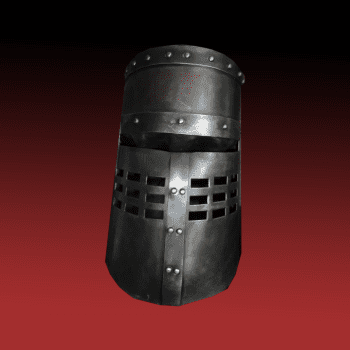The following post is an excerpt from my book, WHY MEN HATE GOING TO CHURCH (Revised edition). To order an autographed copy, click here.
* * * * *
In my previous post I explained how the rise of the Contemporary Christian Music industry changed the way we worship God. The old worship was formal, corporate, and emotionless. The new worship is informal, individualistic, and touchy-feely.
So here’s the big question: is the new praise-and-worship (P&W) good for men? The answer is yes and no.

On the positive side, P&W greatly simplified sacred singing, placing men who can’t read music on an equal footing with the classically trained. The simple, repetitive lyrics of early praise songs were also a boon to men who had spent years tripping over Elizabethan lyrics such as, “Here I raise mine Ebeneezer, hither by thy help I’m come . . .”
P&W is also set to a modern beat and uses the same instruments men play and listen to for pleasure—guitar, bass, drums, and keyboard. Projecting the lyrics on the big screen makes it easier for men (and women) to participate, eliminating the need to flip through a hymnal. Worship leaders can now transition seamlessly from one song to the next, without having to call out a page number and wait for the congregation to catch up.
The informal nature of modern worship is a strong plus for men. Most guys never enjoyed getting dressed up for church. They like being able to wear shorts and drink coffee during the service. Worshipping in the dark gives them some anonymity. Men like to watch TV—so the addition of big screens to the worship space is probably a good thing.
So the new worship has lots of pluses for men. But P&W has feminized worship in a number of ways as well.
Before P&W, Christians sang hymns about God. But P&W songs are mostly sung to God. The difference may seem subtle, yet it completely changes how worshippers relate to the Almighty.
P&W introduced a familiarity and intimacy with God that’s absent in many hymns. God used to be out there. He was big. Powerful. Dangerous. He was our leader. But with P&W, he’s at my side. He’s close. Intimate. Safe. He’s a lover.
Most people assume this shift to greater intimacy in worship has been a good thing. On many levels, it has been. But it ignores a deep need in men to experience a God of power, a God of authority and might, a God to be feared as well as loved.
Although hymns are old fashioned, they still have what it takes to pierce men’s hearts. Hymnals are packed with battle and blood imagery. And it’s not just the lyrics—many hymns march forward in 4/4 time. Many hymns would not sound out of place on a battlefield.
Unfortunately, many of today’s P&W songs sound more suited to the bedroom. They express our love for God in romantic terms.
Picture two male hunters sitting in a duck blind, shotguns resting in their laps. One hunter decides to express his affection for the other, using the words of a popular praise song. He turns to his friend and says, “Hey, buddy . . .
Your love is extravagant
Your friendship, it is intimate
I feel I’m moving to the rhythm of Your grace
Your fragrance is intoxicating in this secret place.
I cannot imagine saying these words to another man, especially one carrying a loaded shotgun.
Lovey-dovey praise songs force a man to express his affection to God using words he would never, never, never say to another guy. Even a guy he loves. Even a guy named Jesus.
The Bible never describes our love for God in such erotic terms. The men of Scripture loved God, but they were never desperate for him or in love with him. Men are looking for a male leader—not a male lover.
Not every P&W song is so amorous. Some songs get the lyrics right—but are set to slow, dreamy music. This reflects women’s tastes. Market research shows that men like robust, fast-paced music with a driving beat. For example, album-oriented rock, known for its blaring guitars and bone-crushing percussion, draws an audience that’s 69 percent male. But soft adult contemporary, known for its tender love songs, attracts 67 percent female ears.
Today’s worship leaders are under pressure to recreate the worship high every Sunday. This is nearly impossible, since a room full of casual churchgoers is not nearly as passionate about music as a concert audience that paid twenty-five dollars or more to get in. Nonetheless, we judge worship leaders on their ability to help the crowd “enter into worship” (translation: respond emotionally to the music).
A top-tier worship leader knows how to do this. He starts the set with a potboiler. Then he slowly brings the tempo down to a simmer. The lights dim. He repeats a verse. He repeats a verse. He repeats a verse. Then, with tinkling piano in the background, he shares a heart-tugging story. The crowd is under his spell. He finishes his set with a breathy, eye-closing, microphone-squeezing number that tries to wring every last drop of passion from the audience. The song builds to a mighty climax that summons a burst of energy from the assembly. After a round of applause, the satisfied worshippers return to their seats, emotionally and physically spent, bathed in the afterglow of heartfelt worship, ready to cuddle up with a message from the pastor.
So, is P&W good for men? It can be. Here are a few recommendations from the Church for Men worship desk:
- Keep worship sets short – three songs tops.
- Sing songs the guys know. Sing at least one familiar hymn each week.
- Choose a key the guys can sing.
- Choose songs that convey respect rather than romance.
- No more than 3 repeats of a chorus. Then move on.
- Recruit good musicians. Fire the bad ones.
- Don’t sing after the sermon.
So what do you think? Is P&W good for men? I welcome your comments below. Or join the conversation on my Facebook page.
















